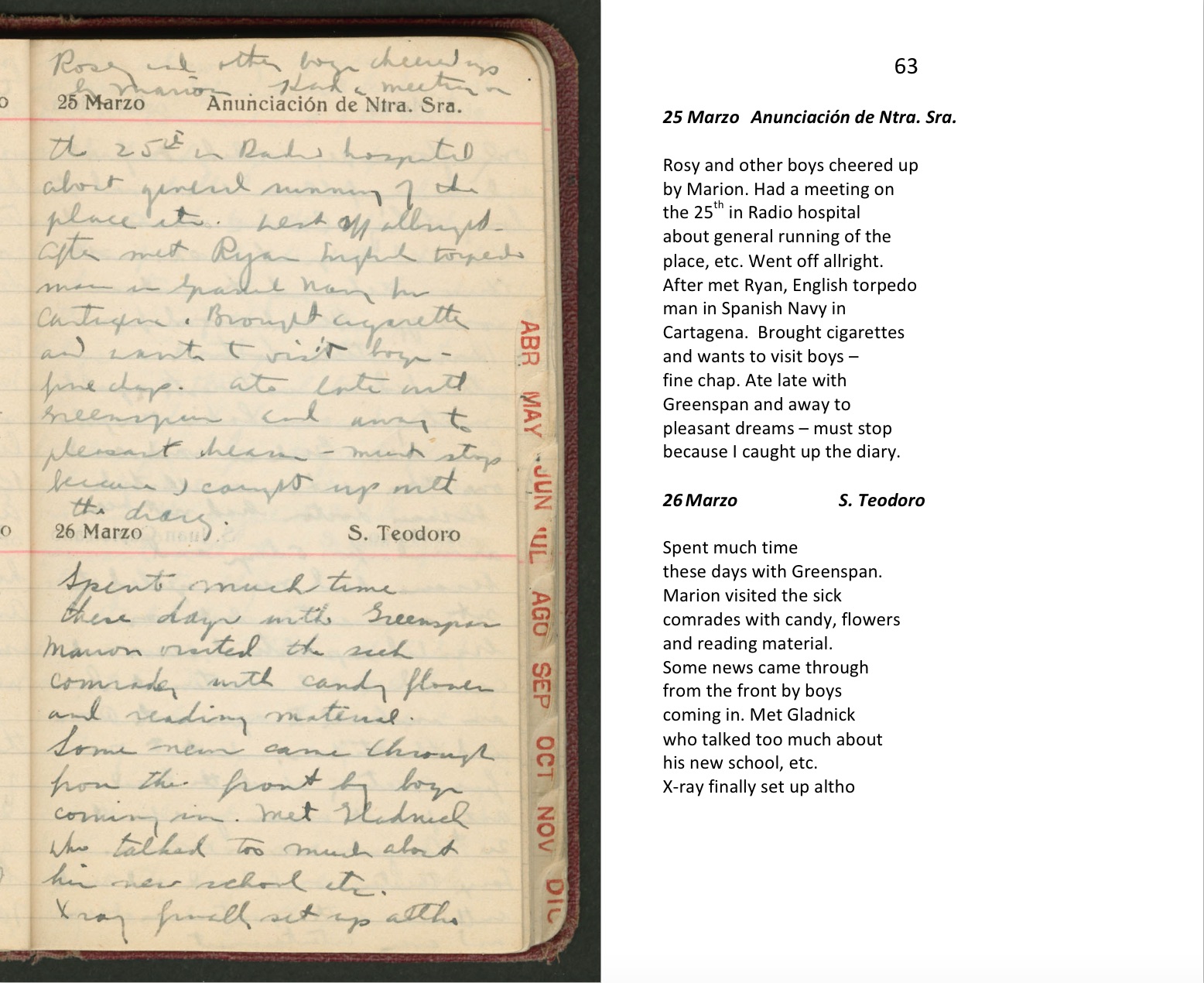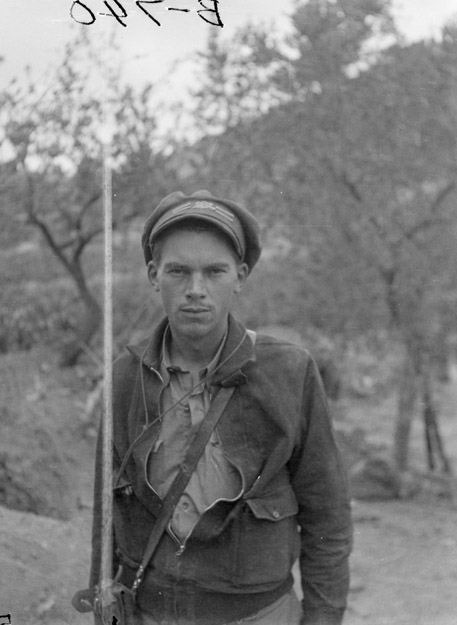
Merriman used the pages from 27 February to March 25 to catch up what he recalled of that period. He wrote most of it on March 25 while he was in the Pasionaria and Radio Hospitals in Murcia. From this point on, the 1937 diary entries will again be synchronized with the dates of the year.
On the 25th, Merriman mentions “Rosy”, Marion and Greenspan, three actors that we have addressed previously. Rosy is believed to be Joseph Rosenstein, who was wounded along with Merriman at Jarama.
In a confusing sentence, Merriman says he “met Ryan, English Torpedo Man in the Spanish Navy at Cartagena”. Barry McLoughlin² suggests that this is not Frank Ryan, who was introduced on the 17-18th of February. Ryan was also wounded at Jarama. Frank Ryan was not a torpedo man in the Spanish Navy.
Merriman calls him a “fine chap”. Alan Warren suggest that the man being discussed is Joe Ryan of Limerick. Joe Ryan (seen with Frank Ryan’s arm around him in the link) was indeed a sailor and actually was killed in a torpedo attack on the HMS Dunvegan Castle which was sunk off Ireland in 1941 (not 1940 as in the link.
William Herrick (a.k.a. William Harvey in Spain, who was also wounded with a bullet in his neck that lodged near his spine) helps paint a picture of the Pasionaria Hospital and a part of this diary page:

So went the days in sunny Spain. I would lie in my cot until mid-morning, be washed by my Spanish nurse … my commander {Merriman}, Robert Jordanesque in his winglike cast, would stroll past, give me a cool nod, continue on, followed by Bill Wheeler, muy simpatico, one of the infantry company adjutants who would stop a moment to chat….³
Robert Gladnick is mentioned in the diary at this point. Herrick continues with his stories of Murcia:
Early one afternoon, heavily involved in a tumultuous encounter with one of the whores {Herrick frequented the local red-light houses}, I heard someone laugh in the adjoining room, a booming voice familiar voice speaking Spanish with a Russian-American accent, and sure enough it was Bob Gladnick. He was wearing a beautiful Harris tweed suit, and carried a side arm on his hip.
Are you Cheka {the Soviet Secret Police} now? I asked.
He laughed his booming laugh. Gladnick was not a shy man. He was now, he told me, an interpreter and tank man with the Russian Tank Corps in Spain. He hobnobbed with generals and leather-jacketed political commissars. Right now he was stationed in Archena, the Russian tank base.³
Gladnick had been assigned by Marty Hourihan to the Russians to be an interpreter since he was Russian by birth. That evening, Gladnick and Herrick drank their way through the town until Gladnick was poured back on a train to Archena. Clearly, Merriman did not appreciate either the Russian base or the Russians being discussed in public. The code word for Russians was “Mexicans” and Gladnick clearly was one who did not use coded words. It is likely that this event worked against both Gladnick and Herrick in their future in the Brigades.
After the war, Robert Gladnick became strongly disenchanted with the Veterans association of the Abraham Lincoln Battalion and he, along with Morris Mickenberg (a.k.a. Morris Maken) and Herrick, founded a counter organization to the VALB.
Merriman runs a story over onto the next page of the diary by saying that “X-ray finally set up altho{ugh}….” Hold that thought for the 27th…
________________________________
¹ Richard Baxell, Unlikely Warriors: The British in the Spanish Civil War and the Struggle Against Fascism, ibid.
² Barry McLoughlin, Fighting for Republican Spain, Lulu.com, ISBN 9781291968392
³ William Herrick, Jumping the Line, ibid.
